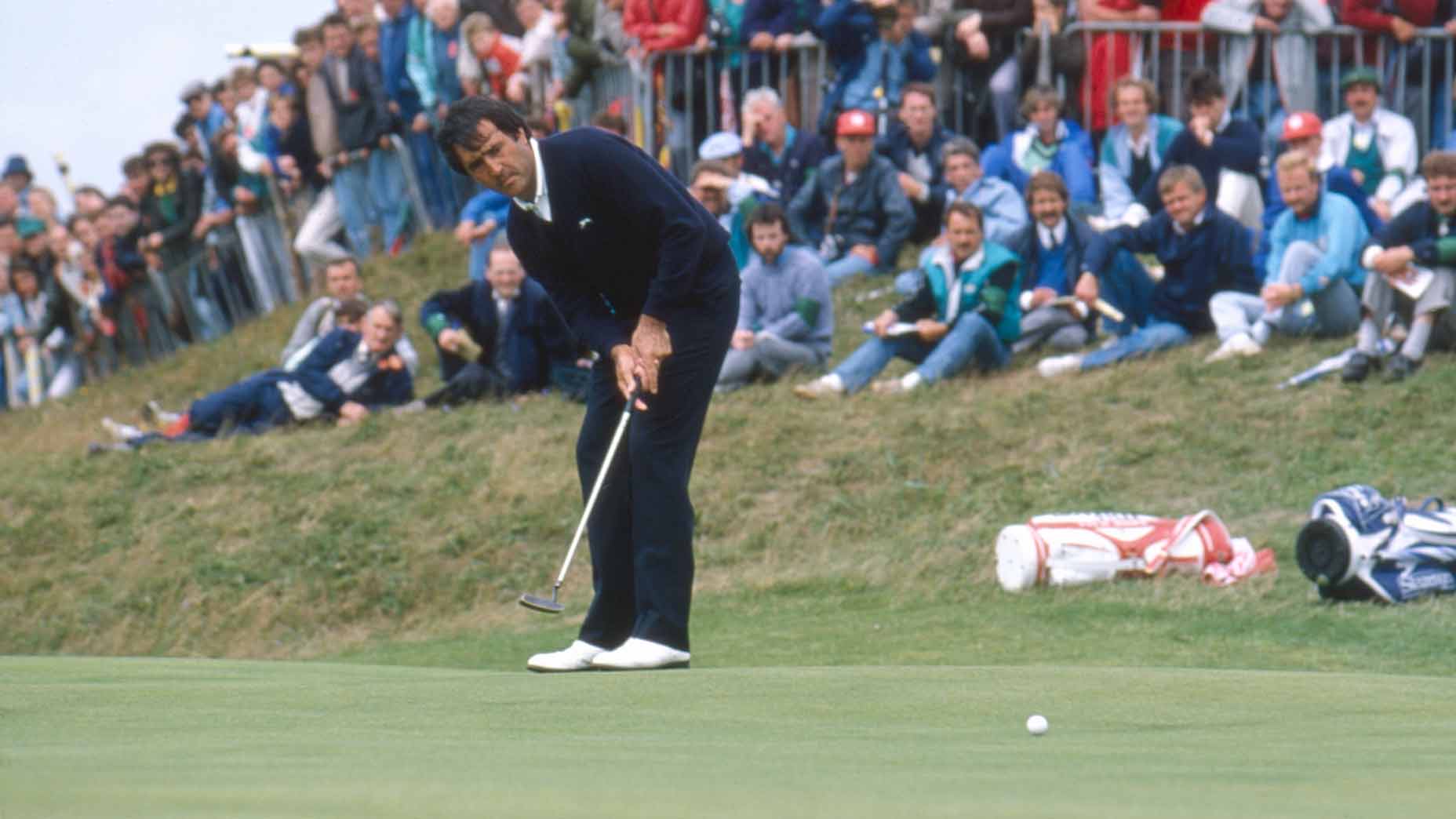Golf instruction is ever-evolving, but the best advice stands the test of time. In GOLF.com’s new series, Timeless Tips, we’re highlighting some of the greatest advice teachers and players have dispensed in the pages of GOLF Magazine. This week, we revisit a clever putting tip from Seve Ballesteros from our September 1986 issue. For unlimited access to the full GOLF Magazine digital archive, join InsideGOLF today; you’ll enjoy $140 of value for only $39.99/year.
One of the most remarkable things about high-level golfers is their touch on the greens. They might not make every putt they look at, but you better believe they’ll have the correct speed. This not only reduces three-putts, also maximizes the size of the hole and allows for more makes.
Recreational players seldom possess the same skill. Hitting putts with the proper speed — and on the correct line — is an exception rather than a rule.
Things only get trickier when introducing lots of break on the putts. These putts require a specific marriage of line and speed to get the ball to drop. Most weekend warriors struggle to get one of these variables correct on the greens, so expecting them to nail both is unlikely at best.
There is a trick that can help you find the right formula on these putts, though, and it comes to us courtesy of five-time major winner Seve Ballesteros.
Seve’s trick for matching line and speed
One of the club golfer’s biggest problems on the greens is being too bold and knocking putts through any break.
Because sharp left-to-right and right-to-left putts depend so heavily on pace, they require an expert touch to get the ball rolling on the right line at the right speed — slow enough to take the slope but fast enough to reach the hole. Hitting the ball just right is a tough assignment, particularly when a match is on the line.
I understand this problem well, which is why I’ve developed a strategic — and slightly unorthodox — method for putting that takes a little pressure off hitting the putt at the perfect speed. And if you aren’t sweating the pace, I guarantee you’ll make more breakers.
The key is swinging on an out-to-in path, which means I catch the ball on the toe of the putter at impact. Because the toe end of the putter is lighter than the center, it effectively deadens the hit, allowing for a more aggressive stroke. Naturally, the combination of cutting across the ball and catching it on the toe is going to cause the ball to move a hair to the right. By using this rightward spin, I can hit the ball on an “inside line” to the crest of the break and let it drift back and down to the hole.
Exactly how you hit the “inside line” putt depends on the direction the putt is breaking.
Faced with a right-to-left putt, many golfers make one of two mistakes: 1) Fearing they won’t reach the crest of the break, they hit the ball too hard and run right through it; or 2) Attempting to be too delicate, they never reach the crest so the ball falls off line on the low side of the hole.
I take precautions against both mistakes by setting the blade square to a point inside the highest point of the break and then making a firm stroke. I take an open stance, which promotes the out-to-in stroke and a hit off the toe of the putterblade. Now when the ball reaches the crest of the break, it is moving fast enough not to fall off course, but slowly enough to take the break.
Again, to hit the left-to-right putt I set up open and aim the putterblade inside the crest of the break. This way the ball will drift back to the normal break and toward the cup.
I’ve been using this method for a few years with success, especially on lightning fast greens. Despite its. unorthodoxy, I consider this percentage putting because even if I hit the ball a little easier or harder than I should, the ball still has a chance of rolling in one of the side doors; that’s a luxury the bold putter never has. He has to be right on the money, otherwise the ball will run past the hole or pop out because it’s moving with too much steam.
If you fall into the category of the overly bold putter, make a visit to the practice green and give my method a try. I’m sure it will give you the inside line to lower scores.
